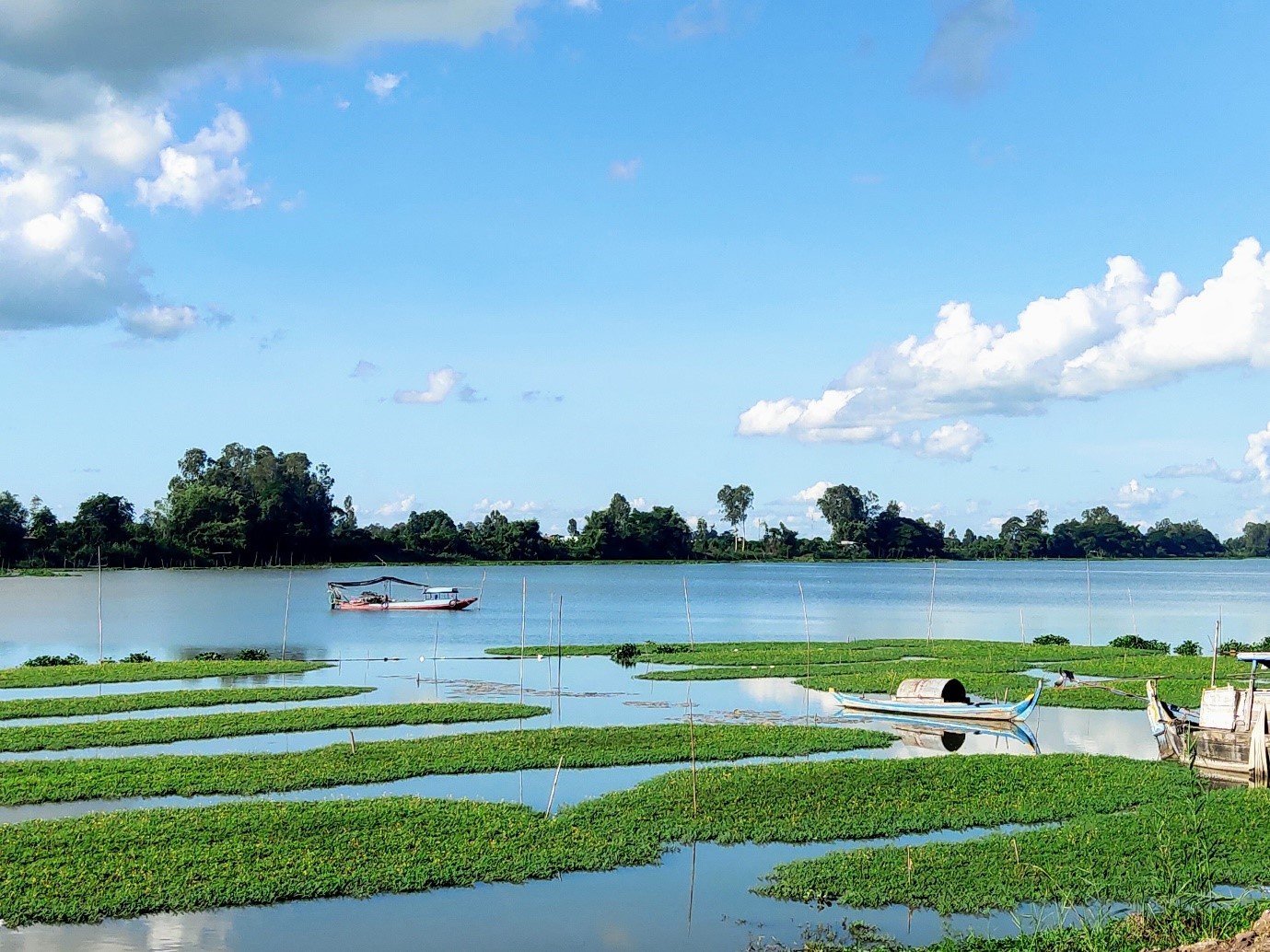Learning and Listening: Using participatory methods for intergenerational research in An Phu district, Vietnam.
Authors: Mai Thị Minh Thuy and Nguyễn Xuân Lan (Research Coordinators) with contributions from Student Researchers Hoang Uyen Cao, Huynh Linh, Lam Duy and Phan Cuong
Boats on Bung Binh Thien, Credit: Mai Thi Minh Thuy
Our “dream team” of researchers traveled to Nhon Hoi Commune, An Phu district in An Giang province in the Mekong Delta from May 27th to May 29th to conduct participatory research activities with young and older people. Our team consists of two coordinators and four student researchers from An Giang University and two community researchers based in Nhon Hoi. The team has spent the past two months doing online training on different research methods including oral history interviewing and participatory mapping.
The Cham people, who are Muslim, are a minority ethnic group, who live across the Mekong region. The main livelihood of the people is fishing in Bung Binh Thien , raising cattle, small businesses or hired labour.
Timeline exercise with older people. Credit Mai Thi Minh Thuy
Our learning and discussion with the community members started with a timeline exercise to learn about the history of the site. The timeline was done with men and women, aged 50 years or older. Participants were asked to share their memories of the history of the site and any important events and trends they remembered. This activity worked well because the participants have lived there for many years so they are knowledgeable about changes in their locality. This activity showed that the community life of the Cham people is very supportive of each other.
The next day the team recorded oral history interviews with older people in the morning and participatory mapping and photography with young people in the afternoon. We learned about the important cultural and religious traditions of the community, their relationship with the environment and how the infrastructure has been upgraded and improved with newly built roads, improving people's lives. The community members shared that the water levels of the lake have changed which now makes fishing difficult and they have started growing water mimosa as an alternative livelihood to supplement their income.
“The biggest advantage of the first day is that I met some local people who were extremely social and enthusiastic to answer my questions and gave me a lot of interesting information about the environment and culture of the Cham ethnic group. In addition, I felt so lucky that I was in a ‘dream team’. Every member in my team always supports and helps the others that need help.”
““First, I carried out an oral history interview with an old woman. She took me to her house and we talked for an hour. Before the interview, I introduced myself and the project and completed some [consent] forms. During the interview, I tried to ask her open-ended questions as I was trained. The woman was very friendly and generous. She talked to me as her child. She spoke Vietnamese fluently and that made it easy to discuss and take notes. After the conversation, I went back to the coffee shop and had lunch. We ate fish noodle known as “bún cá”
“I think mapping & photography is fascinating. Maybe because I’m young too (haha). The young interviewees are shy, especially the young women, they do not easily express their perspective. Later, I share some same hobbies (they also use social media to relax). They feel like friends and continue to draw a map.”
“Field trip tips: 1) Making a clear plan is crucial; 2) To make close relationship needs time; 3) Don’t be afraid and don’t panic if something doesn’t go as expected. Be calm...”
We had also hoped to travel to Soc Trang province to repeat these methods in a different environment but right now an outbreak of Covid-19 is preventing us from travelling to different provinces. For now we are planning to return to An Phu district to do more data collection and follow up with the contacts we have made. We are looking forward to learning more about this beautiful area!
Funding:
This research was funded, in part, by the School of History Classics and Archaeology (Newcastle University). This additional funding from HCA enabled the research to go head at this time, despite the funding cuts experienced by all UKRI/GCRF funded projects that took effect from March 2021.


